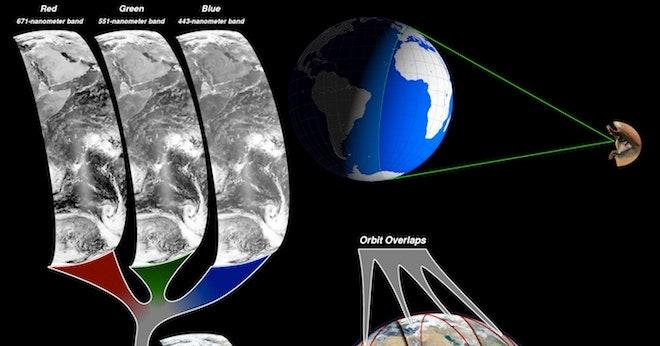For centuries, scientists have sought to understand the origins of life on Earth. The question of how life emerged from simple organic molecules and evolved into complex organisms has long puzzled researchers. However, a recent study suggests that a crucial factor in the jump-start of complex life may have been cold water and the physics associated with it.
Water is an essential component of all known life forms, and its unique properties make it an excellent medium for chemical reactions to occur. One of these properties is the fact that water is most dense at 4 degrees Celsius, just above its freezing point. This means that when water cools below this temperature, it becomes less dense and starts to rise, creating a convection current.
This convection current, known as a thermohaline circulation, is crucial for the mixing of nutrients and gases in the oceans. It is also responsible for transferring heat from the equator to the poles, regulating the Earth’s climate and ensuring that temperatures remain within a habitable range.
According to the study published in the journal Nature, these thermohaline circulations may have played a key role in the development of complex life. The researchers used computer simulations to model the early Earth’s oceans, which were assumed to be much cooler than they are today.
The simulations suggested that the circulation of cold water from the poles to the equator would have caused nutrient-rich water to rise from the ocean depths. This nutrient upwelling would have provided a steady supply of essential elements, such as phosphorus and nitrogen, necessary for the formation of complex organic molecules.
Furthermore, the convection of cold water would have also played a crucial role in stabilizing the Earth’s climate. By transferring heat from the equator to the poles, this process would have prevented the planet from becoming frozen entirely or too hot for life to thrive. Stable and moderate temperatures are essential for the chemical reactions required for life to emerge and evolve.
The researchers believe that the physics of cold water may have offered a unique and favorable environment for the formation of complex organic molecules, such as RNA and proteins. These molecules are the building blocks of life, and their presence is crucial for the development of more advanced organisms.
This study adds to a growing body of research suggesting that the physical properties of water played a crucial role in the emergence and evolution of life on Earth. Previous studies have shown that the structure and behavior of water molecules allow for the self-assembly of complex molecules and the stabilization of genetic material.
By understanding the physics of cold water and its potential impact on the origins of life, scientists can gain valuable insights into the possible conditions on other planets and moons in our solar system or even beyond. It also highlights the importance of studying the universal properties of water and their potential implications for the search for extraterrestrial life.
the recent study suggests that the physics of cold water, particularly its thermohaline circulations, may have jump-started the development of complex life on Earth. The convection of nutrient-rich water from the ocean depths and the stability of the climate provided a favorable environment for the formation of complex organic molecules. This research not only deepens our understanding of the origins of life on Earth but also has implications for our search for life beyond our planet.

